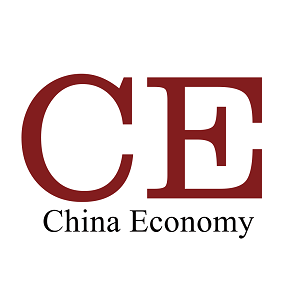
Financial Secretary for the Hong Kong Special Administrative Region Paul Chan Mo-po gives a speech on the 2020-21 budget of Hong Kong in the Legislative Council on February 26. (Photo: HKSAR government)
With China's Hong Kong Special Administrative Region (HKSAR) facing a worsening outlook in economic growth and rising unemployment, experts called for closer economic ties with the Chinese mainland.
Hong Kong Financial Secretary Paul Chan Mo-po said Sunday that Hong Kong still faces a bleak situation as a recent flare-up of local COVID-19 infections have added uncertainty to the outlook. Chan was not optimistic about Hong Kong's second-quarter economic outlook.
GDP shrank 8.9 percent year-on-year in the first quarter, the HKSAR government said on Friday - the worst quarterly drop since records began in 1974 - as the pandemic dealt a heavy blow to the city. The government forecast an economic contraction of 4-7 percent this year.
Chan said that the city's unemployment rate had probably climbed last month as many sectors were badly affected by disease-control measures.
The unemployment rate surged to a 10-year high of 4.2 percent in March. For the first quarter as a whole, the unemployment rate was 4.2 percent, the highest in nine years, and the underemployment rate was 2.1 percent, the highest in the past 10 years.
Ongoing social violence and the novel coronavirus outbreak have hit Hong Kong's labor market hard in the past year, Hong Kong-based economist Liang Haiming, chairman of the China Silk Road iValley Research Institute, told the Global Times on Sunday.
"A lot of companies had to lay off workers or ask them to take unpaid leave. Export-oriented and service-oriented sectors were hard hit," Liang said.
To stabilize the job market, the HKSAR announced an HK$81 billion ($10.5 billion) relief plan, which includes wage subsidies to eligible employers who avoid layoffs. In terms of job creation, Hong Kong is to invest HK$6 billion to create around 30,000 time-limited jobs in the coming two years.
"If relevant measures are in place, they should avoid ... a worsening unemployment rate," Liang said.
He said that Hong Kong should seize opportunities for the construction of the Guangdong-Hong Kong-Macao Greater Bay Area, the Belt and Road Initiative and the construction of the China (Hainan) Pilot Free Trade Zone, as well as development of new infrastructure and new consumption.
"Hong Kong should continue to attract companies related to new infrastructure and consumption to list and set up their Asia-Pacific headquarters in Hong Kong. This will not only boost Hong Kong's financial market and advance its development as an international technological innovation center but also provide more employment opportunities for young people," Liang said.
He also urged Hong Kong's foreign trade companies to grab the large market of 1.4 billion people in the Chinese mainland, especially markets in the Guangdong-Hong Kong-Macao Greater Bay Area.
Experts have warned that in the second half of this year, the Hong Kong economy will contract further and employment prospects will remain bleak.
"Throughout 2020, Hong Kong's GDP will continue to shrink. A decline of 1.5 percent is the optimistic outlook. The economy will pick up slightly due to relief policies, but Hong Kong's retail, tourism and other consumer markets will face challenges this year," Liang said.



